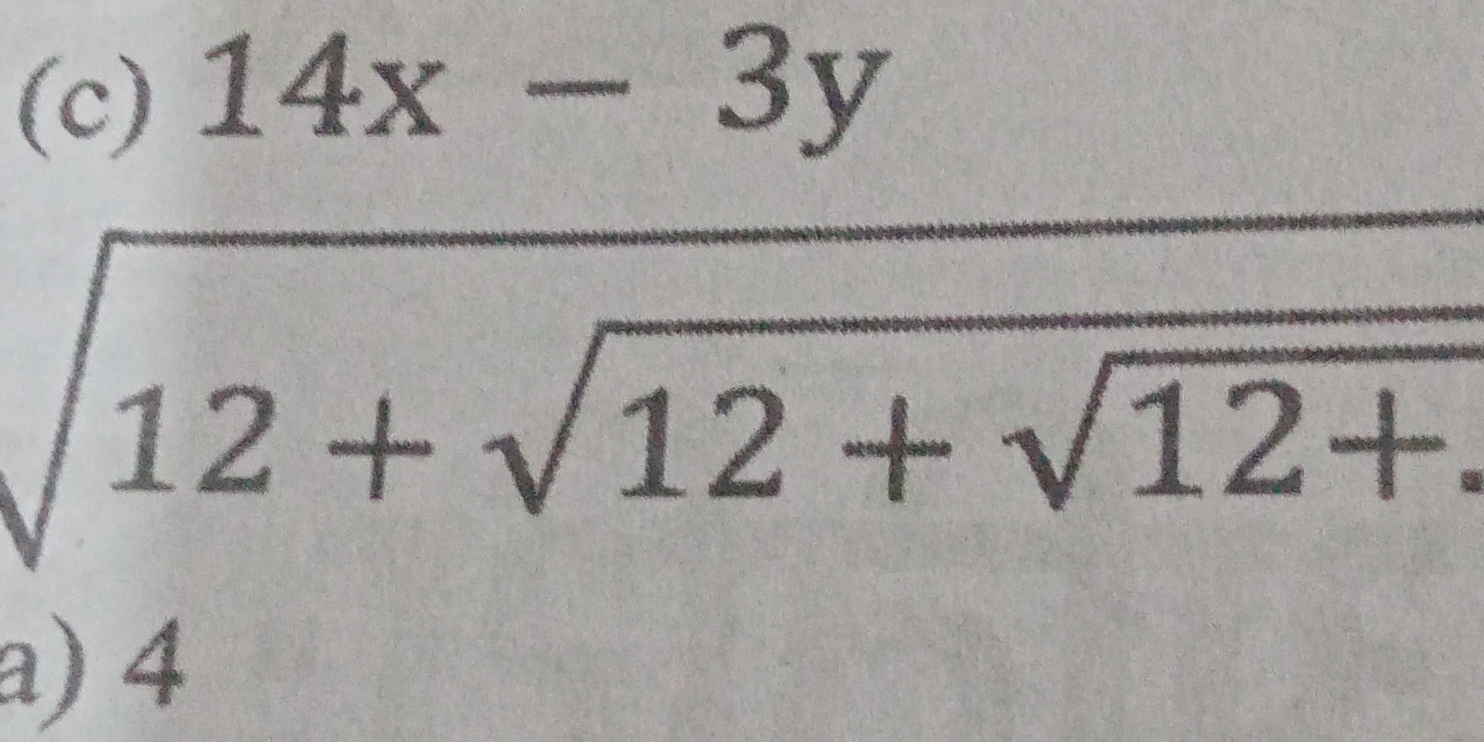14x - 3y + √(12 + √(12 + √(12 + ...)))

Understand the Problem
The question is presenting an expression involving square roots and variables, and it seems to require simplification or solving for given variables.
Answer
The expression simplifies to \( 60 - 3y \).
Answer for screen readers
The expression simplifies to ( 60 - 3y ).
Steps to Solve
- Set up the equation for the square root expression
Let $x = \sqrt{12 + \sqrt{12 + \sqrt{12 + \ldots}}}$.
This means we can rewrite the expression as:
$$ x = \sqrt{12 + x} $$
- Square both sides of the equation
To eliminate the square root, we'll square both sides:
$$ x^2 = 12 + x $$
- Rearrange the equation
Rearranging gives us a standard form quadratic equation:
$$ x^2 - x - 12 = 0 $$
- Factor the quadratic equation
Next, we need to factor the quadratic. We look for two numbers that multiply to -12 and add to -1. The factors are -4 and 3. Thus we can factor it as:
$$(x - 4)(x + 3) = 0 $$
- Solve for x
Setting each factor to zero gives:
$$ x - 4 = 0 \quad \Rightarrow \quad x = 4 $$
$$ x + 3 = 0 \quad \Rightarrow \quad x = -3 $$
Since $x$ must be positive (as it represents a square root), we choose:
$$ x = 4 $$
- Plug back into the original expression
Now substitute $x$ back into the original expression to get the final answer:
$$ 14x - 3y + x = 14(4) - 3y + 4 $$
This simplifies to:
$$ 56 - 3y + 4 = 60 - 3y $$
The expression simplifies to ( 60 - 3y ).
More Information
The original square root expression converges to 4 because of its self-similar structure. This is a classic example of evaluating an infinite nested radical.
Tips
- Forgetting to square both sides correctly when isolating the variable.
- Disregarding the fact that the result from a square root must be non-negative, leading to rejecting a negative solution.
AI-generated content may contain errors. Please verify critical information